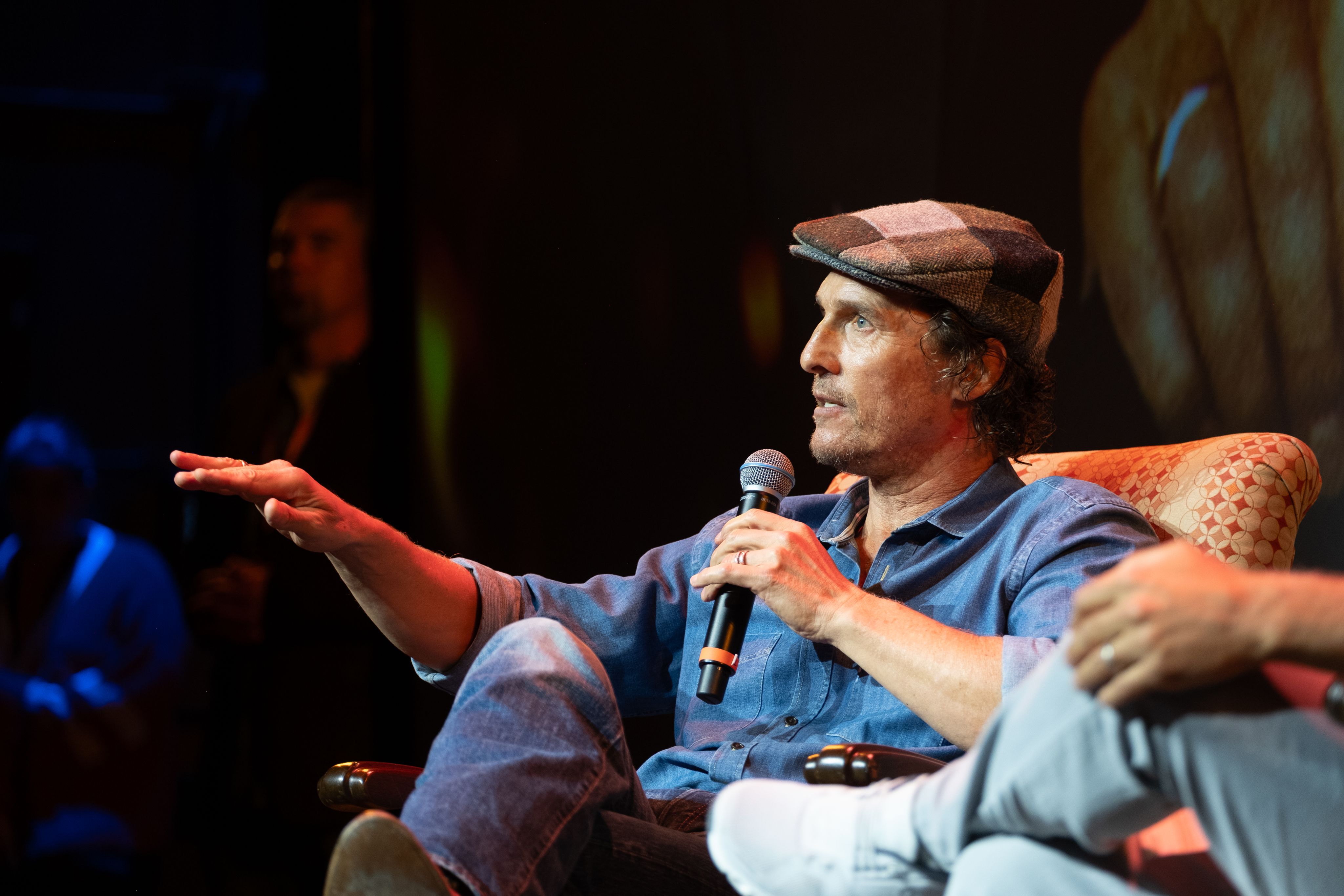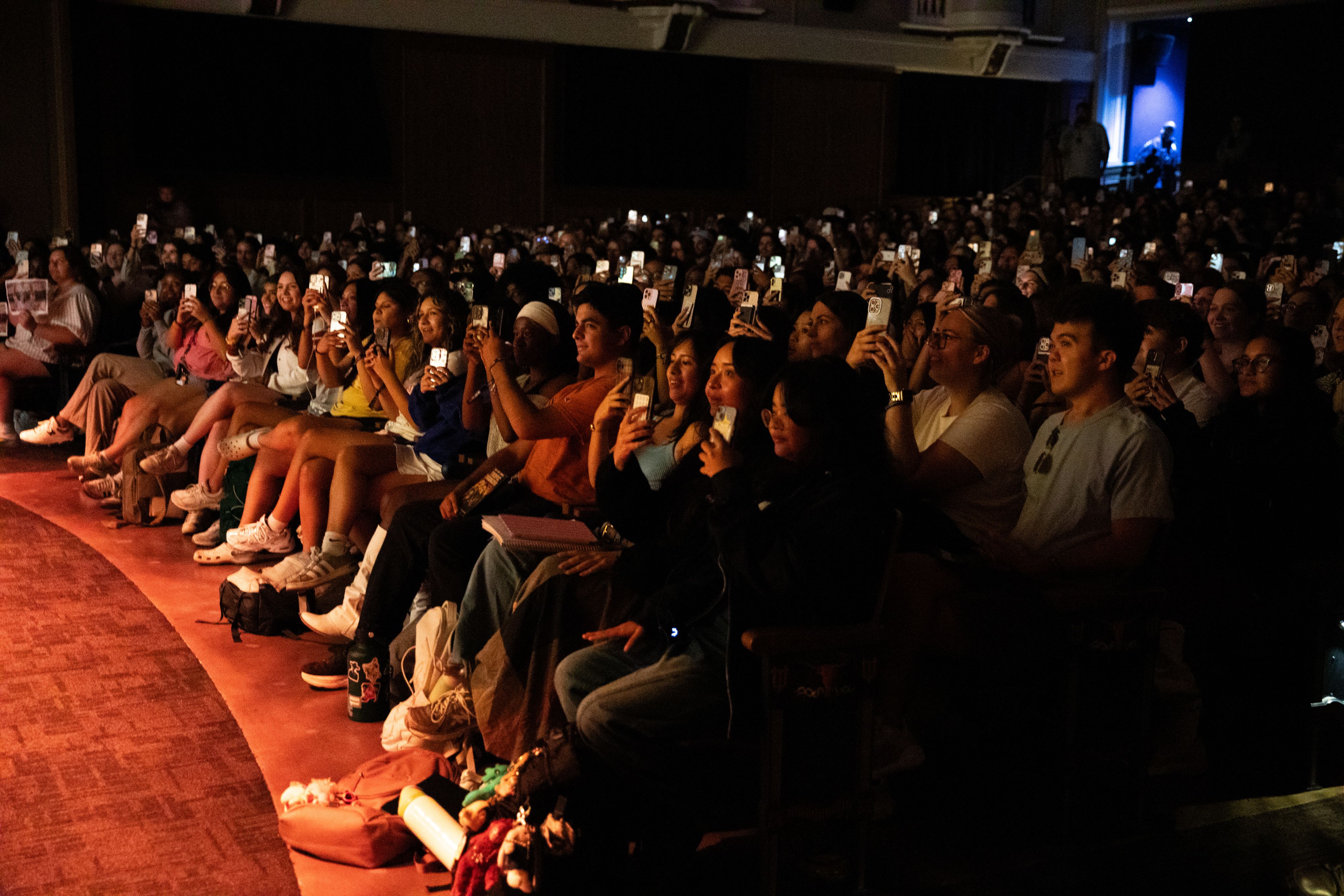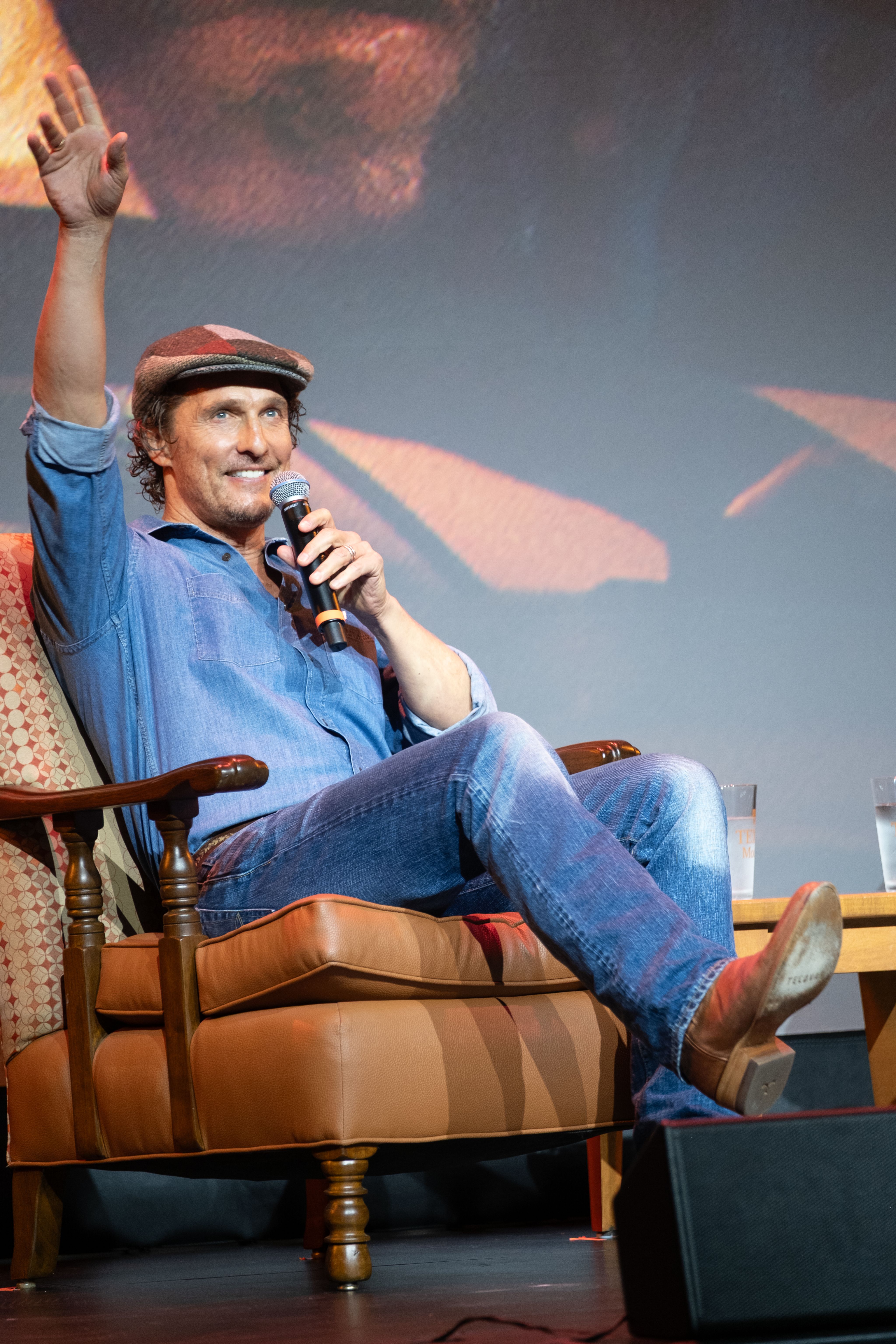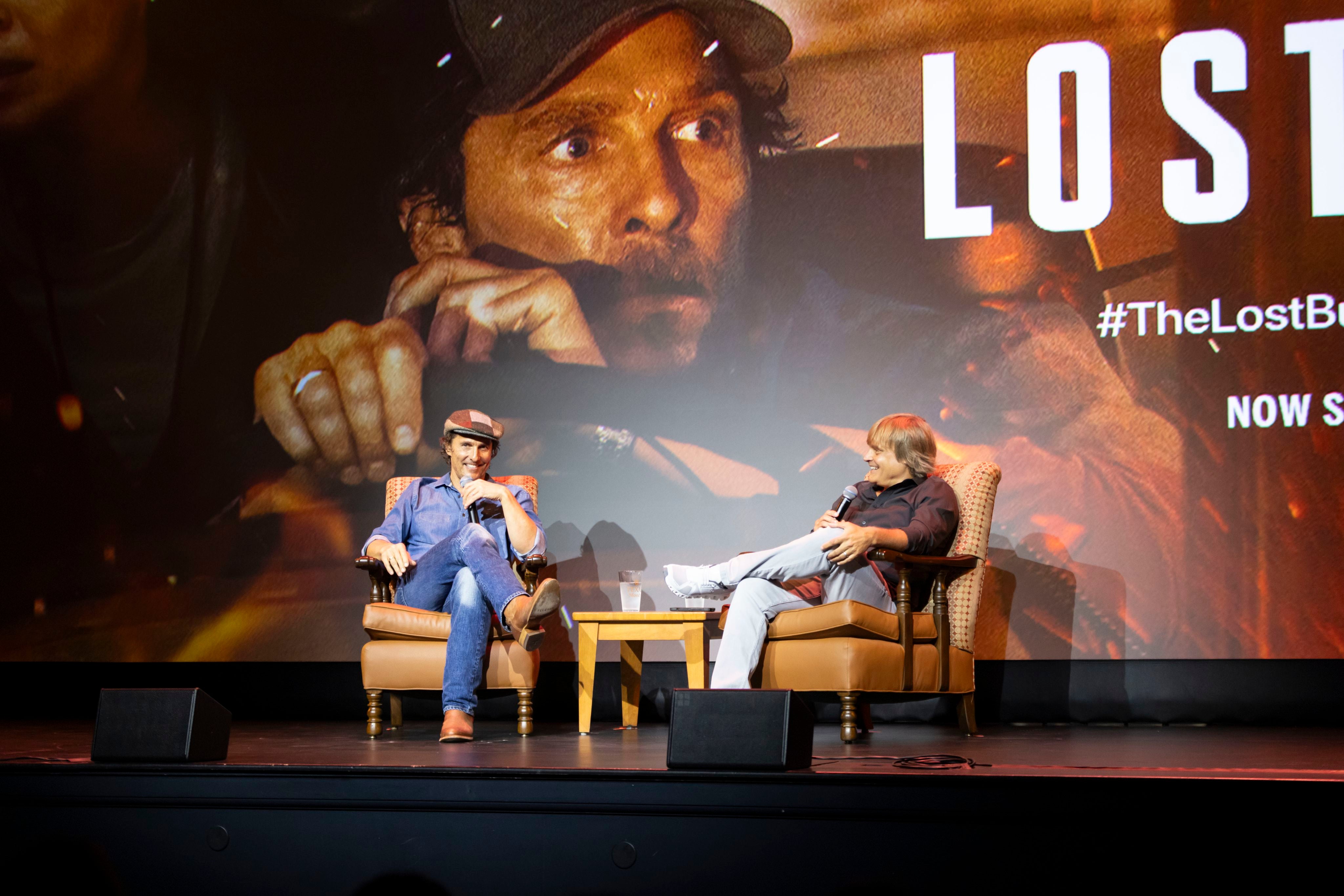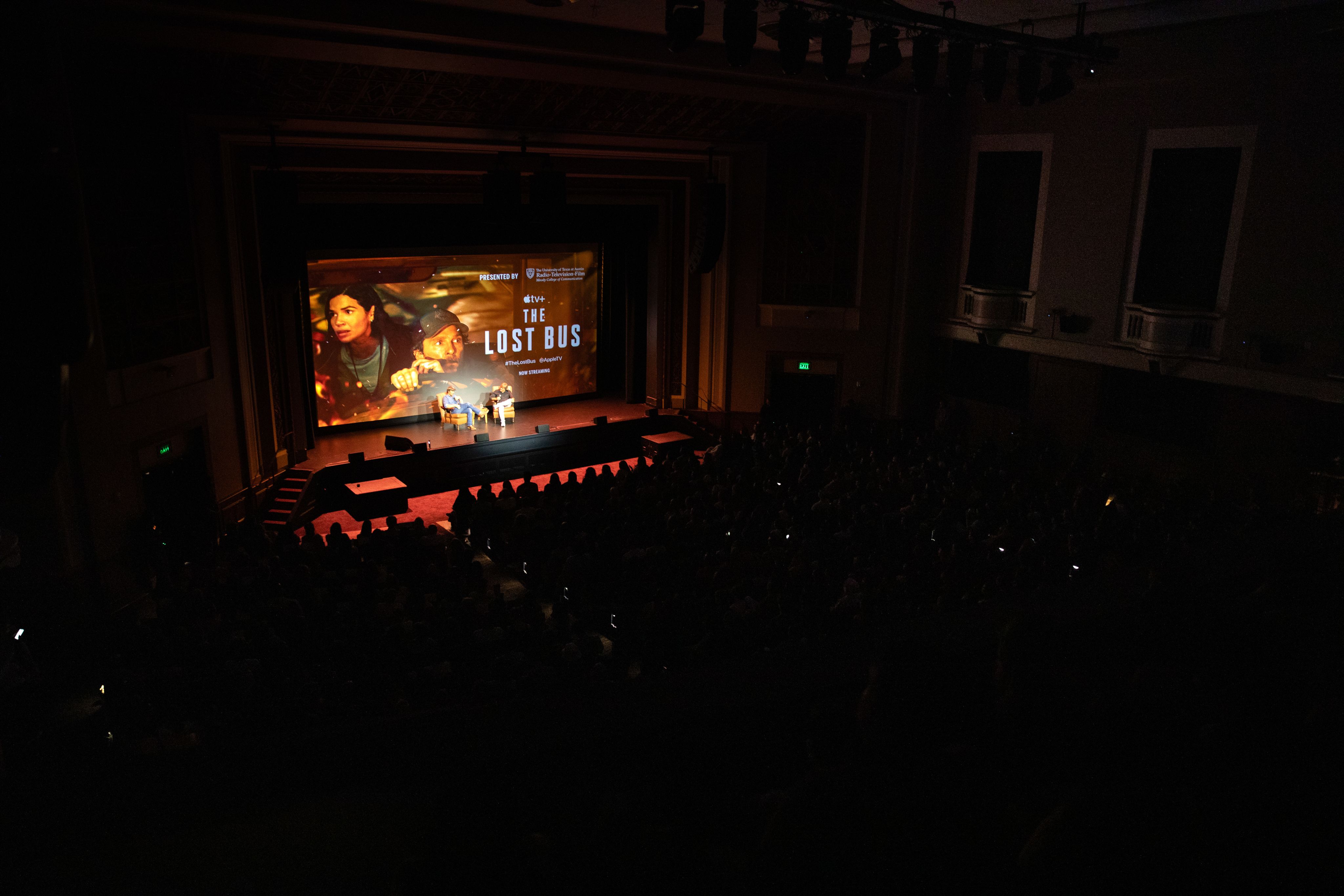Behind the wheel of "The Lost Bus"
Behind the wheel of "The Lost Bus"
Matthew McConaughey brings his new film to Texas Moody, drives home lessons in storytelling
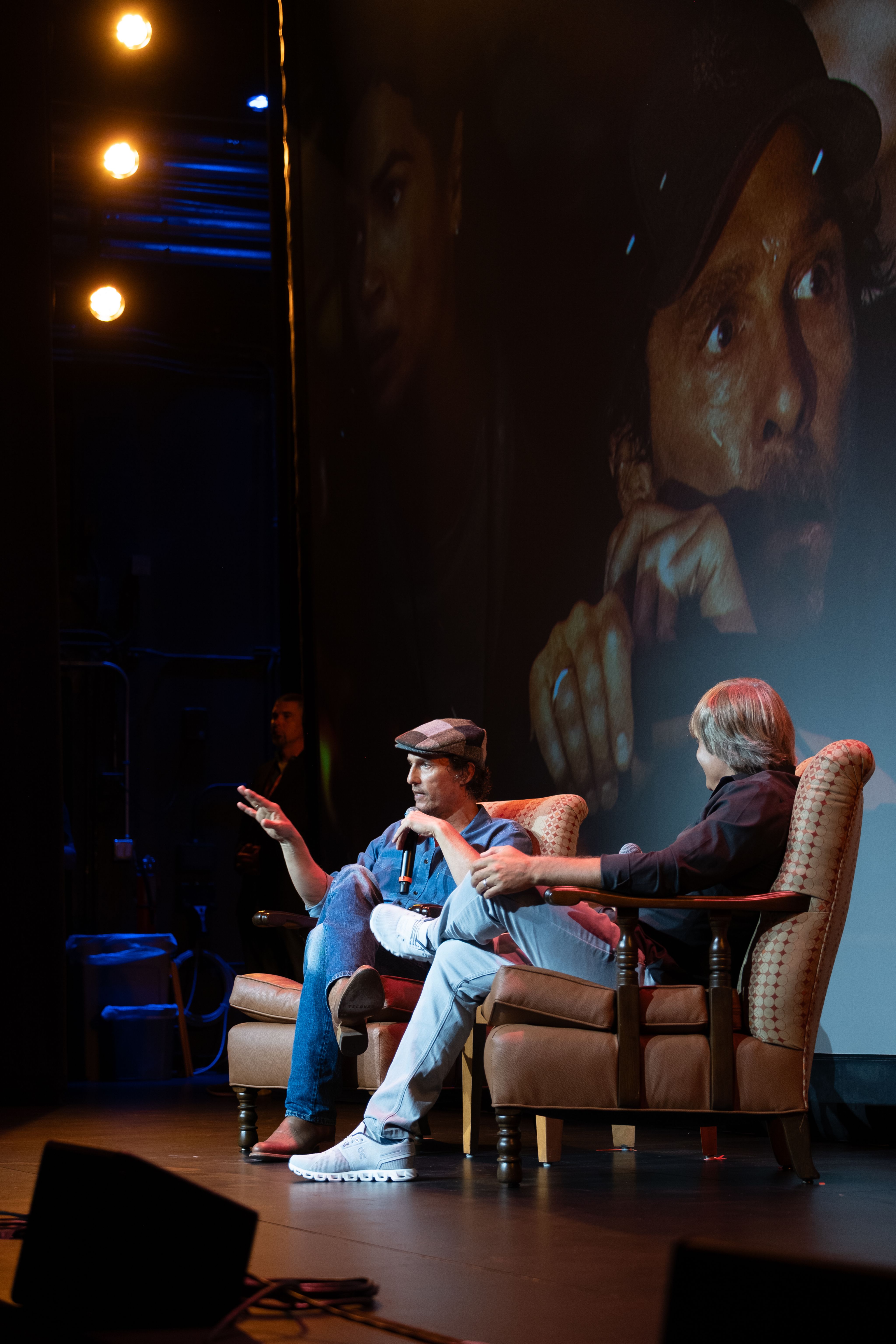
A full house of students from throughout Moody College of Communication filled the Hogg Memorial Auditorium, waiting to hear from Matthew McConaughey, Academy Award-winning actor and professor of practice in the Department of Radio-Television-Film. Ahead of a special screening of his new film, “The Lost Bus,” that had the entire auditorium on the edges of their seats, McConaughey sat down with RTF associate professor of practice, Scott Rice, to discuss the film, his advice for students and what it was like working with his own son and mother.
McConaughey was greeted with thunderous applause and the sight of hundreds of phones being held in the air to snap photos as he and Rice entered the stage. Rice quickly pointed out how some of the students in the front row had been waiting in line for the Q&A and film screening since 9 a.m.
The conversation soon turned to Script to Screen, the class the two professors teach each semester, and how the course is celebrating its 10-year anniversary in 2025.
“It still feels like I was sitting in your seat here at college 10 years ago,” McConaughey said, adding his gratitude for the book he’d received in the hours prior filled with photos and keepsakes from the last 10 years. “But that's why I started the class, because it was the class that I wished I would have had when I was sitting where you're sitting.”
McConaughey recalled how his early days in film and landing a role in Richard Linklater’s 1993 classic, “Dazed and Confused,” informed his career, along with the inspiration for the course.
Photo by Ivan Rocha
Photo by Ivan Rocha
Photo by Lizzie Chen
Photo by Lizzie Chen
Photo by Leticia Rincon
Photo by Leticia Rincon
“It was about trying to come back and give an experiential learning opportunity with the Script to Screen classes and show film and advertising students that there's a different way every story's made,” McConaughey said. “I noticed 25 years ago that the final film is very different from the original script. Every script has a different journey to becoming a film, and that's what the class has been about, talking about the journey that that script takes to the screen.”
Soon, Rice and McConaughey began discussing “The Lost Bus," now available to stream on Apple TV+, and the incredible true story that inspired the film. During the 2018 Camp Fire in Paradise, California, a school bus driver raced a stranded class of 22 students and their teacher to safety as the most devastating wildfire in California’s history closed in around them. McConaughey said that Jamie Lee Curtis, one of the film’s producers, heard the story on NPR and knew then the realities faced by bus driver, Kevin McKay, and teacher, Mary Ludwig, needed to reach a larger audience. The film is an adaptation of the book “Paradise: One town’s struggle to survive an American wildfire” by Lizzie Johnson.
The conversation became an insightful look into Paul Greengrass’s, director of acclaimed films like “United 93” and “Captain Phillips," style and how they captured the extreme tension of the wildfire and the character's wills to survive.
“You don't know where the camera's going to be so you're reacting more than you are acting, and he wants to have that sort of urgency,” McConaughey said. “Another thing he does, 50% of the actors in this film are not actors. So, he hires non-actors to work with actors because he says he believes, and rightfully in a lot of ways, that non-actors help actors act less, and actors help non-actors become better performers.”
“It was about trying to come back and give an experiential learning opportunity with the Script to Screen classes and show film and advertising students that there's a different way every story's made,” McConaughey said.
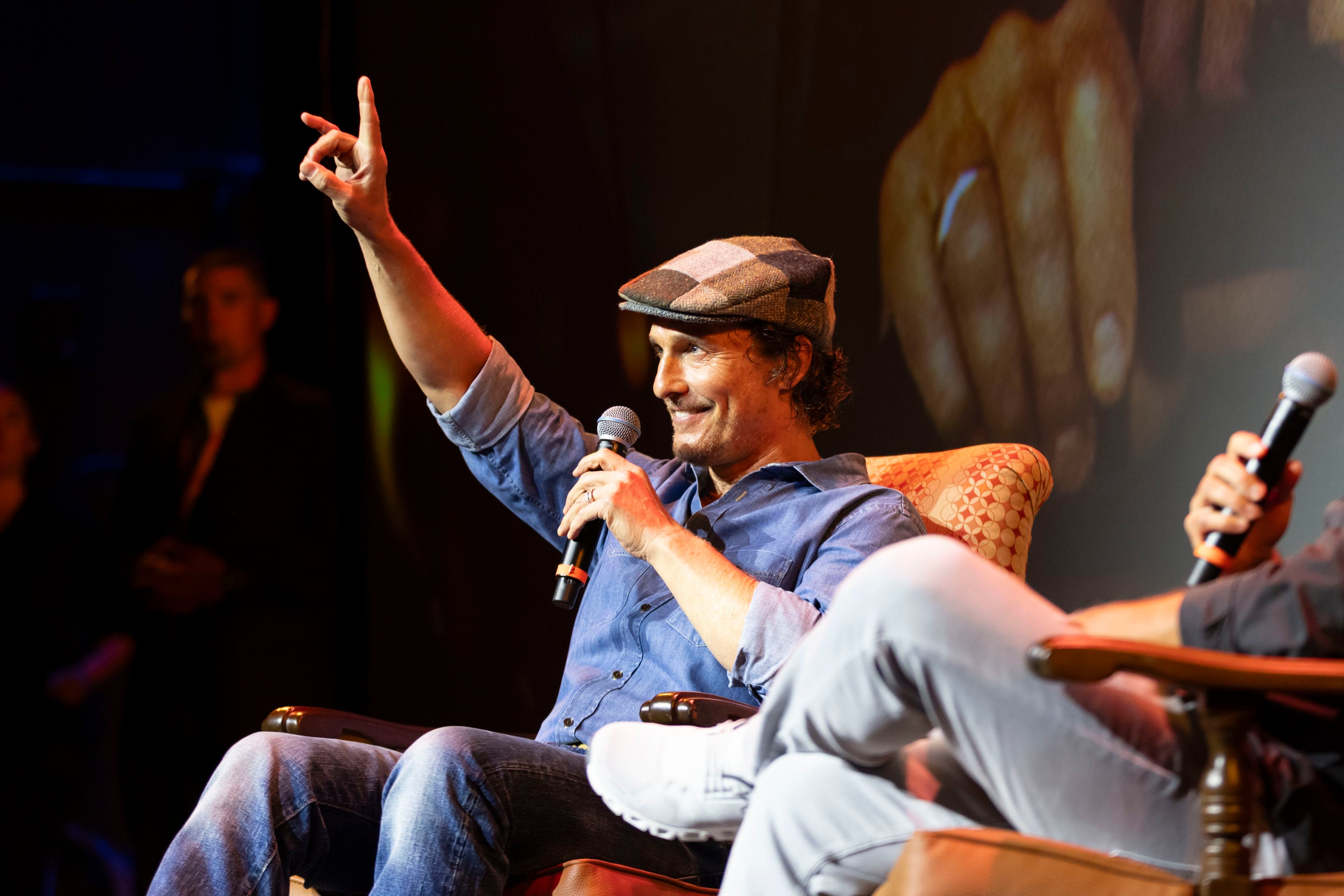
Students listened intently as he described actually driving the bus in the film, the choreography that was involved in those scenes, and describing what it was like working alongside America Ferrera as their characters are in opposition with one another.
“America’s a pro and her character is very much by the book and follows protocols, but I'm very much not by the book, and you'll see how and why when you see the film,” McConaughey said. “There wasn't a lot of rehearsing because if you work with Paul Greengrass, you're kind of writing as you go. There's a script that was generally what we wanted to shoot, but he’s not big on sticking to dialogue. He wants real behavior. So, our roles and our relationship grew as we made the film.”
Perhaps one of the most interesting stories of the evening was hearing McConaughey describe how both his actual son, Levi, and his mother, Kay, were cast in the film as his character’s son and mother. He described how this was the first time Levi had ever shown interest in acting and after initially chuckling at his son’s requests to read for the part, McConaughey eventually gave in, submitting the audition video without the family last name.
“If he got it, I wanted him to feel the ownership that he got it based on what he did,” McConaughey said. “So, I’m in the film with my son and my mom, which I was told hasn't been done since the Douglas family. So, it's cool now, it was cool then, and it's going to keep getting cooler for me as time goes by. And to be on the red carpet at Toronto Film Festival with my my mom on the right side, and my son on the left side, that picture is already framed and in my office.”
Photo by Ivan Rocha
Photo by Ivan Rocha
Before the end of the Q&A, Rice asked McConaughey what advice he had for the students in the packed auditorium. McConaughey encouraged students to start “cross-pollinating” as much as possible to learn about each communication discipline’s role in storytelling.
“You all are in the storytelling business, whether you're a journalist, whether you’re in advertising, whether you're in film, you're all telling some kind of story, right?”
The crowd shouted a resounding, “Right!”
“Right, and you want that story to translate, right?”
Another resounding, “Right!”
“You want your story to be understood,” McConaughey said. “You don't want to make it where you go, ‘I love it, I get it,’ and then everyone else looks at and goes, ‘I have no idea what this is about.’ You want to communicate.”
McConaughey encouraged students to simply create while they’re in school, saying that even if they make something subpar, it’s better than not making anything at all. He told a story of looking back at his own student films and while he recognizes now that they aren’t his best work, he’s proud that he at least tried.
“So, now's the time to swing,” he said. “And don't ask permission to swing and go for it. If you mess up now, great, bravo. Swing 10 times, even if you fail nine of them. But now it's the time to take those chances.”
“So, now's the time to swing,” he said. “And don't ask permission to swing and go for it. If you mess up now, great, bravo. Swing 10 times, even if you fail nine of them. But now it's the time to take those chances.”
